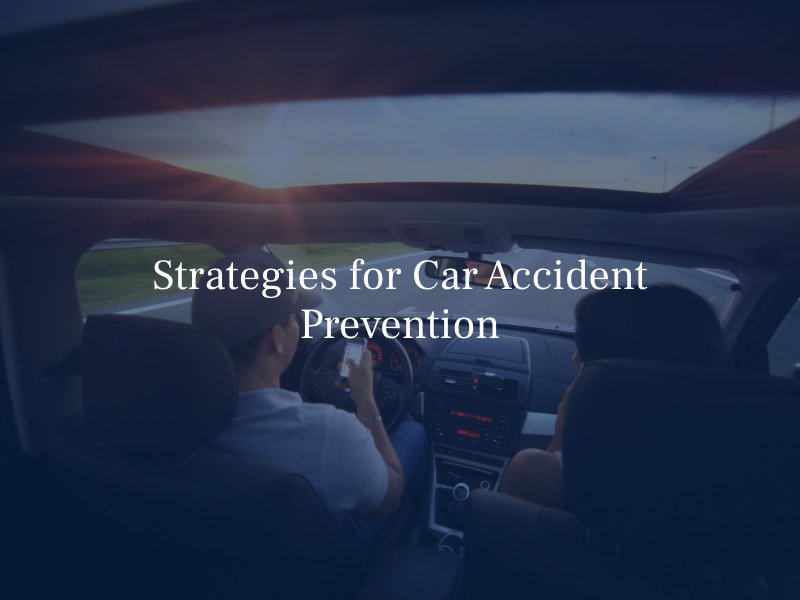Effective Strategies for Accident Prevention On the Road
October 20, 2023 Posted In Car Accidents,Personal Injury
Drivers can significantly reduce the likelihood of accidents and contribute to a safer road environment for everyone by implementing these effective strategies.

Defensive Driving
Adopting a defensive driving approach is crucial. This means staying vigilant, anticipating the actions of other drivers, and being prepared for unexpected situations. Maintaining a safe following distance and constantly scanning your surroundings can prevent rear-end collisions and other accidents caused by sudden maneuvers.
Eliminate Distractions
Distracted driving is a leading cause of accidents. Avoid using mobile devices, adjusting the radio, or engaging in other activities that divert your attention from the road. A momentary lapse in focus can have devastating consequences.
Adherence to Traffic Laws
Obeying traffic laws is a fundamental safety practice in addition to being a legal obligation. This includes respecting speed limits, stop signs, traffic signals, and right-of-way rules. These regulations are in place to ensure orderly and safe traffic flow.
Regular Vehicle Maintenance
A well-maintained vehicle is less likely to experience mechanical failures that could lead to a crash. Regularly check brakes, tires, lights, and other critical components. Timely maintenance can also prevent unexpected breakdowns on the road.
Seat Belts
Wearing a seat belt is one of the most effective ways to reduce the risk of injury in an accident. Ensure that all passengers, regardless of their seating position, are buckled up. It is a simple but lifesaving practice.
Avoid Impaired Driving
Never operate a vehicle under the influence of alcohol, drugs, or any substances that impair your judgment or coordination. Arrange for a designated driver or use alternative transportation options if you’re not in a condition to drive safely.
Adjust to the Weather
Adjust your driving behavior to match the weather conditions. Slow down in rain, snow, or fog, and increase your following distance. Reduced visibility and slippery roads also require extra caution.
Drive When Well-Rested
Fatigue impairs reaction time and decision-making abilities. Avoid driving when you’re drowsy or exhausted. Take regular breaks on long journeys to stay refreshed and alert.
Signal Intentions
Use turn signals to indicate your intentions to other drivers. Early and clear communication promotes predictability on the road, reducing the likelihood of misunderstandings or sudden maneuvers.
Pedestrian and Cyclist Awareness
Be attentive to pedestrians and cyclists. Yield the right of way at crosswalks and maintain a safe distance when passing cyclists. They are more vulnerable road users, and extra caution is warranted.
Avoid Aggressive Driving
Maintain a calm and patient demeanor on the road. Aggressive behaviors like tailgating, weaving in and out of traffic, or road rage can escalate situations and increase the risk of collisions.
Adapt to Road Conditions
Be mindful of changing road conditions, especially in construction zones. The reduced speed limit is designed to give drivers ample time to react to changing conditions, sudden stops, or unexpected obstacles. It provides a buffer of time that can mean the difference between a near miss and a potential catastrophe.
If you or a loved one has been involved in an accident, arrange a free consultation with a trusted Riverside Car Accident Attorney. They can go over your legal options and help you recover the compensation you deserve.